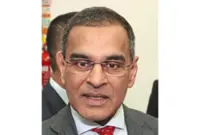EARLIER in May, the World Health Organization (WHO) announced that Covid-19 is no longer considered a public health emergency.
But the pandemic had shed light and imprinted a bad memory for us: Our healthcare system is vulnerable to crisis, and it has severe implications on the overall economy.





